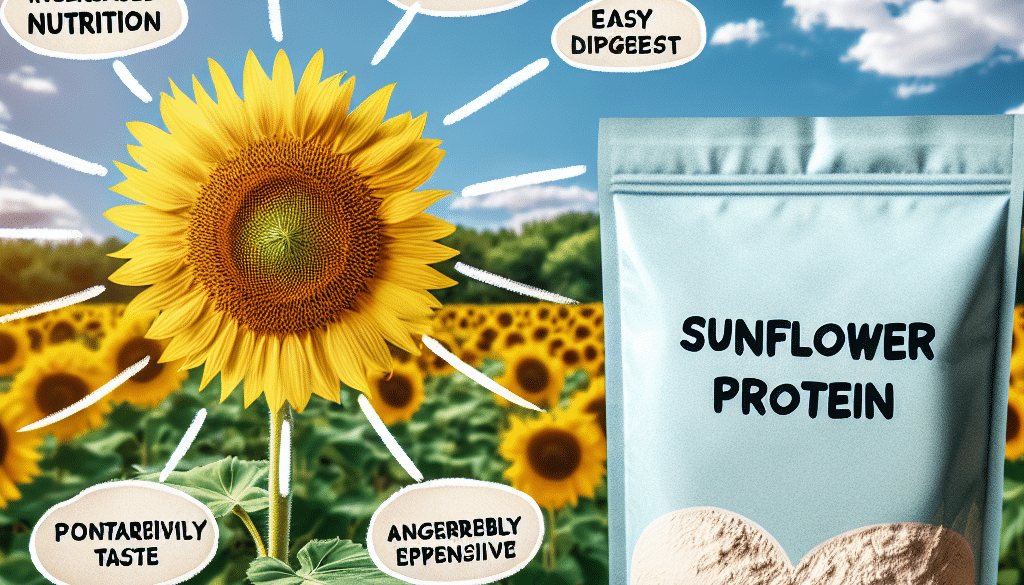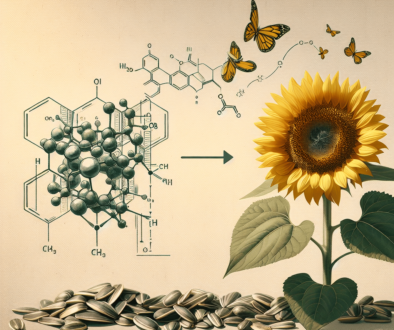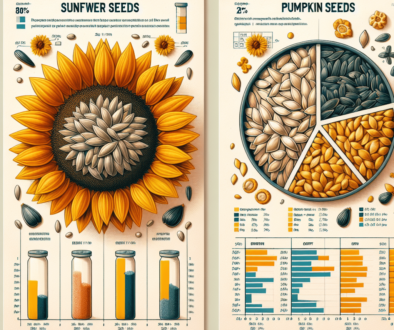Sunflower Protein Review: Pros and Cons
-
Table of Contents
- Sunflower Protein Review: Pros, Cons, and Applications
- Introduction to Sunflower Protein
- Pros of Sunflower Protein
- Cons of Sunflower Protein
- Nutritional Profile and Health Benefits
- Environmental and Sustainability Considerations
- Applications in Food and Beverage Industry
- Case Studies and Market Trends
- Comparative Analysis with Other Plant Proteins
- Challenges and Future Directions
- Conclusion
- Discover ETprotein’s High-Quality Sunflower Protein
Sunflower Protein Review: Pros, Cons, and Applications

As the global population becomes increasingly health-conscious and environmentally aware, the demand for sustainable and nutritious plant-based proteins has surged. Among the various plant proteins available, sunflower seed protein is gaining attention for its unique nutritional profile and potential health benefits. This comprehensive review will delve into the pros and cons of sunflower protein, providing insights into its applications, backed by relevant examples, case studies, and statistics.
Introduction to Sunflower Protein
Sunflower protein is derived from the seeds of the sunflower plant (Helianthus annuus). The seeds are known for their high oil content, but once the oil is extracted, the remaining meal is rich in protein. This protein can be processed into a powder, which is becoming a popular ingredient in various food products and dietary supplements.
Pros of Sunflower Protein
- Nutritional Benefits: Sunflower protein is a complete protein, containing all nine essential amino acids. It is also rich in fiber, minerals, and vitamins, particularly vitamin E and B vitamins.
- Hypoallergenic: Unlike common allergens such as soy and dairy, sunflower protein is less likely to cause allergic reactions, making it a safe option for individuals with food sensitivities.
- Environmental Impact: Sunflower cultivation has a relatively low environmental footprint compared to other crops, requiring less water and pesticides, which contributes to sustainable farming practices.
- Non-GMO and Organic Options: Many sunflower protein products are non-GMO and available in organic forms, catering to consumers who prefer natural and unmodified food sources.
Cons of Sunflower Protein
- Flavor Profile: Some consumers may find the taste of sunflower protein to be distinct or unpleasant, which can affect the palatability of products containing it.
- Protein Content: While sunflower protein is a complete protein, it may have a lower protein concentration per serving compared to other plant-based proteins like pea or rice protein.
- Availability: Sunflower protein is not as widely available as other plant proteins, which can limit its accessibility and increase its cost.
- Processing Concerns: The methods used to extract protein from sunflower seeds can vary, and some processes may involve chemicals or high temperatures that could affect the nutritional quality.
Nutritional Profile and Health Benefits
Sunflower protein boasts an impressive nutritional profile. It is particularly rich in essential amino acids such as lysine, which is often limited in plant proteins. Additionally, it contains dietary fiber, which promotes digestive health, and is a good source of healthy fats, including polyunsaturated and monounsaturated fats. The presence of antioxidants like vitamin E helps combat oxidative stress, and the B vitamins in sunflower protein play a crucial role in energy metabolism.
Environmental and Sustainability Considerations
The environmental benefits of sunflower protein are significant. Sunflowers are robust plants that can grow in a variety of climates and soil types. They have a deep root system that helps prevent soil erosion and can improve soil health. Moreover, sunflowers are often used in crop rotation systems to break pest and disease cycles, reducing the need for chemical interventions.
Applications in Food and Beverage Industry
Sunflower protein is versatile and can be used in a wide range of food and beverage products. It is commonly found in protein bars, meat substitutes, dairy-free yogurts, and protein shakes. Its emulsifying properties make it useful in baked goods, where it can improve texture and moisture retention. Additionally, sunflower protein can be incorporated into pasta, cereals, and snack foods to enhance their protein content.
Case Studies and Market Trends
Several case studies highlight the growing popularity of sunflower protein. For instance, a European company successfully launched a range of vegan meat alternatives using sunflower protein as the main ingredient. Market trends indicate a steady increase in the demand for sunflower protein, with projections showing continued growth, particularly in the plant-based and vegan markets.
Comparative Analysis with Other Plant Proteins
When compared to other plant proteins like pea, rice, or hemp, sunflower protein holds its own in terms of nutritional value and sustainability. However, each protein source has its unique attributes, and consumers may choose based on personal preferences, dietary restrictions, or specific health goals.
Challenges and Future Directions
Despite its benefits, sunflower protein faces challenges such as limited consumer awareness and competition from more established plant proteins. Future directions may include improving processing techniques to enhance the nutritional profile and flavor of sunflower protein, as well as expanding its use in functional foods and nutraceuticals.
Conclusion
In summary, sunflower protein offers a range of benefits, from its nutritional advantages to its environmental sustainability. While there are some drawbacks to consider, such as taste and availability, the overall potential of sunflower protein in the plant-based market is promising. As consumer demand for sustainable and hypoallergenic protein sources grows, sunflower protein is well-positioned to become a key player in the industry.
Discover ETprotein’s High-Quality Sunflower Protein
If you’re looking for a reliable source of sunflower protein, ETprotein offers a premium selection of plant-based proteins, including sunflower seed protein. Their products are characterized by a neutral taste, non-GMO, and allergen-free attributes, making them an excellent choice for various applications in the food and beverage industry.
About ETprotein:
ETprotein, a reputable protein Chinese factory manufacturer and supplier, is renowned for producing, stocking, exporting, and delivering the highest quality organic bulk vegan protein and plant proteins. They include Organic rice protein, clear rice protein, pea protein, clear pea protein, pumpkin seed protein, sunflower seed protein, mung bean protein, etc. Their offerings, characterized by a neutral taste, non-GMO, allergen-free attributes, cater to a diverse range of industries. They serve nutraceutical, pharmaceutical, cosmeceutical, veterinary, as well as food and beverage finished product distributors, traders, and manufacturers across Europe, USA, Canada, Australia, Thailand, Japan, Korea, Brazil, and Chile, among others.
ETprotein specialization includes exporting and delivering tailor-made protein powder and finished nutritional supplements. Their extensive product range covers sectors like Food and Beverage, Sports Nutrition, Weight Management, Dietary Supplements, Health and Wellness Products, and Infant Formula, ensuring comprehensive solutions to meet all your protein needs.
As a trusted company by leading global food and beverage brands and Fortune 500 companies, ETprotein reinforces China’s reputation in the global arena. For more information or to sample their products, please contact them and email sales(at)ETprotein.com today.












